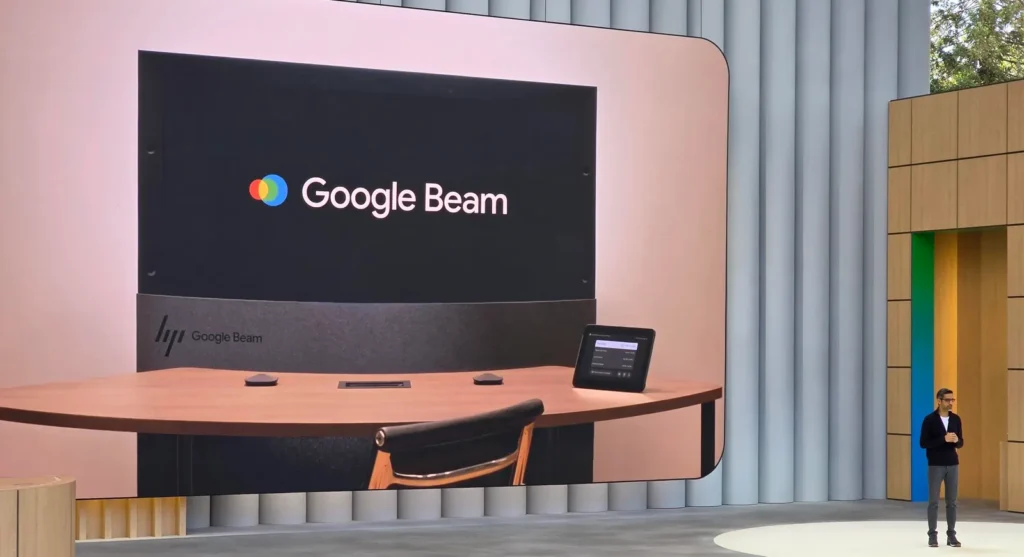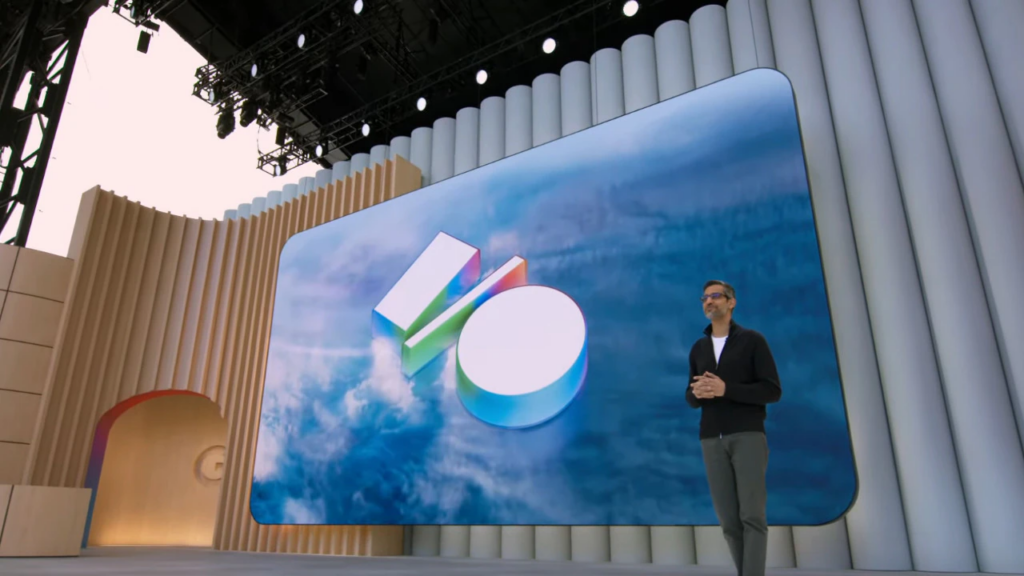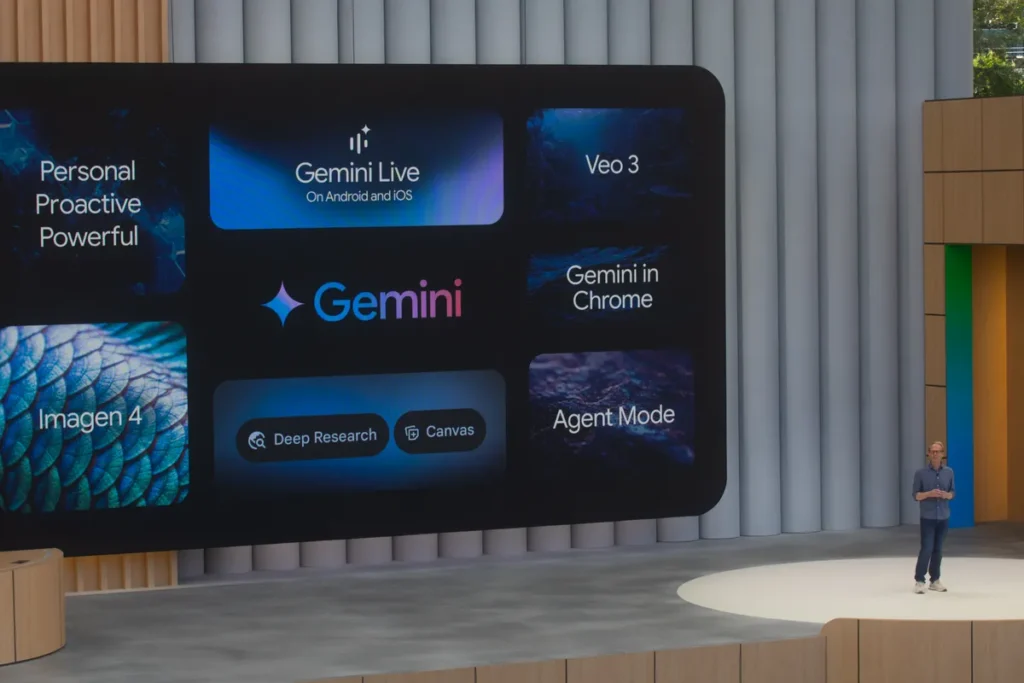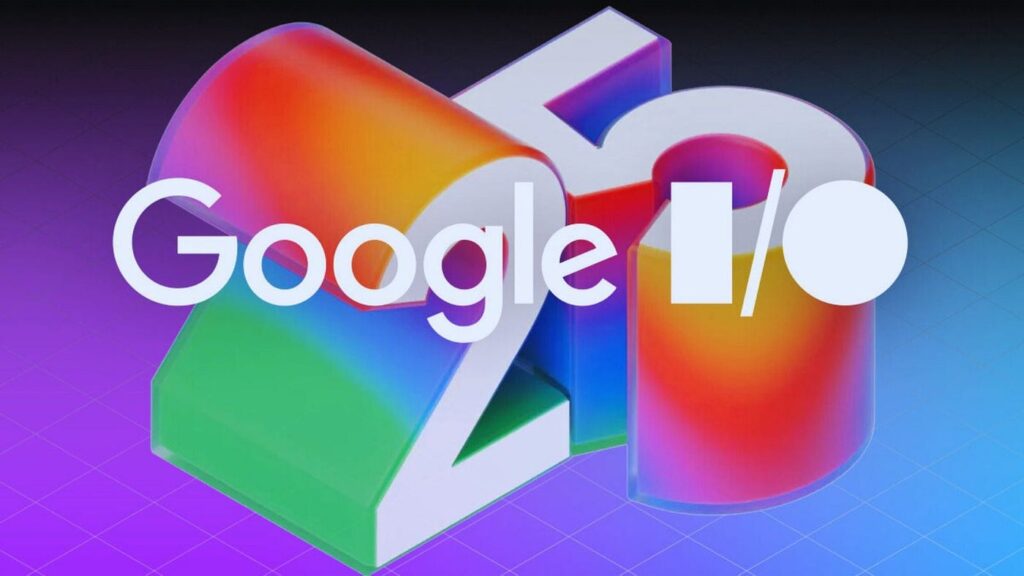Google I/O 2025, the company’s annual developer conference, emphatically underscored Alphabet‘s profound structural shift towards an AI-first paradigm.
With the robust deployment of Gemini 2.5, significant advancements in foundational infrastructure like Ironwood. Also powerful new AI-driven features across flagship services including Search, Google Meet, and Gemini Live. Google has solidified its unwavering commitment to translating decades of cutting-edge research into functional, accessible, and impactful products for billions of users worldwide.
Google I/O 2025: Gemini 2.5 and Google Beam Solidify Alphabet’s AI-First Future
During his keynote address, Sundar Pichai, CEO of Google and Alphabet, shared compelling data illustrating the remarkable evolution of the Gemini family of models in both technical capability and global adoption.
The monthly volume of tokens processed by Google’s AI systems has surged from a modest 9.7 trillion to a staggering 480 trillion in just one year. Concurrently, the number of active developers leveraging Gemini has quintupled, now reaching an impressive seven million.

Gemini 2.5 and Breakthrough Reasoning Capabilities
At the forefront of Google’s AI advancements is the Gemini 2.5 Pro model, which currently holds the top position on the LMArena ranking, specializing in evaluating linguistic and reasoning task performance. Google has meticulously optimized its complementary counterpart, Gemini 2.5 Flash, for superior speed and reduced cost, making it a highly sought-after option among developers.
Based on parallel thinking techniques, Google designed Deep Think to significantly enhance the Pro model’s advanced reflective capabilities.
Ironwood, Google’s new seventh-generation Tensor Processing Unit (TPU), powers this advanced reasoning. Boasting a staggering 42.5 exaflops per pod and dramatically improved energy efficiency. Ironwood enables the rapid execution of large-scale inferential workloads.
This infrastructure has pushed the efficiency frontier on the Pareto curve, setting an unprecedented technical standard for the AI industry.

Google Beam: The Evolution of Immersive Communication
Another standout innovation is Project Starline’s evolution into Google Beam, an innovative AI-powered video communication platform.
Its cutting-edge features include sub-millimeter head tracking at 60 fps and rendering on advanced 3D light field displays. Google plans to release the first commercial devices this year, in collaboration with HP.
Significant advancements in Google Meet further complement Beam. Google Meet now features a near real-time automatic voice translation system capable of simulating the speaker’s timbre, tone, and expressions.
Currently in beta for Google AI Pro and Ultra subscribers, Google is set to expand this feature to more languages in the coming months. Promising truly seamless global communication.
Intelligent Agents and a New Ecosystem Architecture
Project Mariner, an ambitious initiative focused on developing AI agents capable of interacting with both operating systems and the web, has advanced towards functional integration within the Gemini API. Leveraging tools like “teach and repeat,” these agents can efficiently learn complex tasks from a single demonstration.
Industry leaders like Automation Anywhere and UiPath have already begun pilot testing these capabilities, with broader availability expected later this summer.
Furthermore, Google unveiled the open Agent2Agent protocol, enabling seamless interoperability between autonomous agents, and announced compatibility with the Context Model Protocol (MCP), an industry initiative spearheaded by Anthropic.
These foundational architectures aim to facilitate fluid and structured communication across diverse components of the growing agent ecosystem.
Gemini also introduces a new “Agent Mode,” initially integrated into its core application, enabling the execution of complex multi-step tasks such as property search and scheduling visits, leveraging integrations with services like Zillow.
This powerful functionality will soon be available to subscribed users, bringing sophisticated AI assistance directly to everyday tasks.
Adaptive Search and Contextual Personalization
A major focus of Google I/O was the reinvention of the search experience. Google announced the rollout of “AI Overviews” (formerly “Modo IA”), a new tab in Search enabling more extensive queries with expanded reasoning capabilities.
This aims to transform traditional search by facilitating deeper, more conversational interactions, and is already live in the United States.
“AI-Powered Glimpses” (formerly “Vista Creada con IA”) functionality has expanded its reach to 200 countries, touching over 1.5 billion users, and demonstrating a 10% increase in search volume activated by this system in key markets.
Google is also pioneering “personal context” integration across its services. An illustrative example is the generation of intelligent email replies within Gmail that not only reflect the user’s writing style but also automatically retrieve relevant information, streamlining communication.
Unleashing Creative Possibilities with Generative AI
On the creative front, Google unveiled two powerful new generative models: Veo 3, specifically designed for video production with native audio, and Imagen 4, focused on generating high-quality images. Both cutting-edge models are seamlessly integrated into the Gemini application.
Additionally, a new tool called Flow empowers filmmakers to extend short video clips into complete scenes using generative models. This functionality is positioned as an invaluable resource for visual creators working on narrative or advertising projects, pushing the boundaries of digital content creation.
Gemini Live, Google’s conversational AI assistant, is also expanding its reach to iOS devices and connecting with services like Google Drive and Gmail to deliver more personalized and context-aware assistance on the go.

Empowering Developers and the Tech Ecosystem
The conference underscored the strategic importance of developers and technology partners in the widespread adoption of these advanced tools. With the five-fold increase in active developers compared to the previous year, Google is committed to offering more APIs, SDKs, and open protocols.
This strategy aims to further expand its ecosystem of agents and customizable AI solutions, fostering innovation across the board.
Tools like Canvas, integrated into Gemini, facilitate the creation of diverse content, including infographics and multilingual podcasts, signaling a clear product direction towards AI-assisted productivity for professionals and creators alike.
Infrastructure, Adoption, and Future Challenges
The accelerating adoption of models like Gemini 2.5 presents a new set of challenges related to data management, algorithmic transparency, and energy sustainability.
Google’s advanced computing infrastructure, such as Ironwood, was presented as a robust technical solution to meet the growing demand for processing power.
However, the ethical and regulatory development of these powerful AI tools will be paramount in the coming years.
Closing the event, Sundar Pichai emphasized AI’s profound potential to transform not only technological products but also societal habits and economic structures.
Examples like the increasing popularity of Waymo among visitors to San Francisco illustrate how these sophisticated technologies are rapidly integrating into everyday life, signaling a future where AI is an indispensable part of human interaction and innovation.

